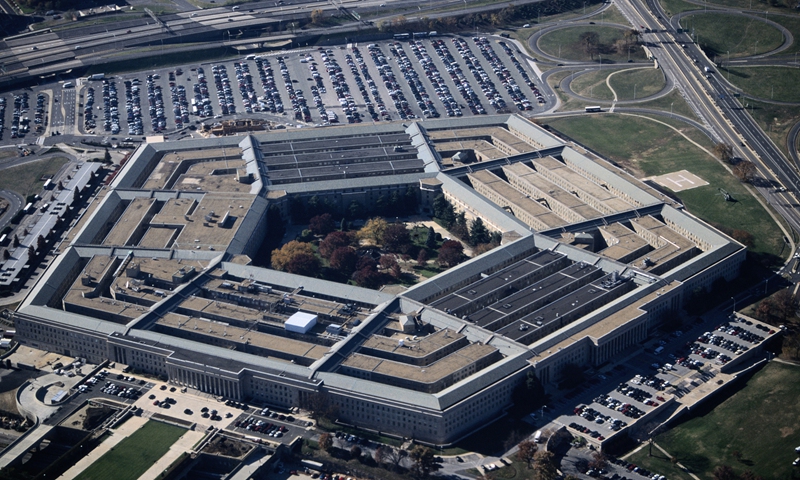US 'trilateral negotiations' a 'political trick'
By Huang Lanlan Source: Global Times Published: 2020/7/10 21:03:40

Pentagon File photo:VCG
The remarks were made responding to the US State Department's statement on Thursday in which it "welcomed Beijing's willingness to engage in arms control talks."
Fu Cong, head of the ministry's Department of Arms Control, had said on Wednesday that China has no interest in joining the negotiations.
The statement reflects the US' tendency to feign innocence, said Zhao Lijian, the spokesperson of China's Foreign Ministry, at a regular press conference in Beijing on Friday.
China's opposition to the negotiations is clear to the US, but the US continues to push for trilateral negotiations, and is even distorting China's standpoint, Zhao said.
"We urge the US to respond positively to Russia's call for an extension of the New START [Strategic Arms Reduction Treaty], and to further reduce its huge nuclear arsenal to create conditions for other countries with nuclear weapons to join international nuclear disarmament," Zhao said.
The noise the US has been making about China joining the negotiations is a tool it utilizes to hype the China factor in terms of nuclear disarmament, Chinese observers said.
"Obviously, the US is eager to look for an excuse to divert the attention of the international community, and to get rid of the New START plausible," said Zhang Junshe, a senior research fellow at the PLA Naval Military Studies Research Institute.
"The US should reduce its nuclear arsenal to the Chinese level first if it really wants sincere negotiations," Zhang told the Global Times Friday.
The US has a huge nuclear arsenal, with 5,800 warheads, about 20 times that of China's, according to data from international think tanks, including the Federation of American Scientists and SIPRI.
China needs to improve its military capabilities, given the huge gap between the nuclear arsenal of China and those of the US and Russia, Fu said.
RELATED ARTICLES:
Posted in: DIPLOMACY